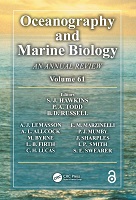Chapter Surving the Anthropocene
Proposal review
Author(s)
Ross, Pauline M.
Scanes, Elliot
Byrne, Maria
Ainsworth, Tracy D.
Donelson, Jennifer M.
Foo, Shawna A.
Hutchings, Pat
Thiyagarajan, Vengatesen
Parker, Laura M.
Language
EnglishAbstract
If marine organisms are to persist through the Anthropocene, they will need to be resilient, but what is resilience, and can resilience of marine organisms build within a single lifetime or over generations? The aim of this review is to evaluate the resilience capacity of marine animals in a time of unprecedented global climate change. Resilience is the capacity of an ecosystem, society, or organism to recover from stress. Marine organisms can build resilience to climate change through phenotypic plasticity or adaptation. Phenotypic plasticity involves phenotypic changes in physiology, morphology, or behaviour which improve the response of an organism in a new environment without altering their genotype. Adaptation is an evolutionary longer process, occurring over many generations and involves the selection of tolerant genotypes which shift the average phenotype within a population towards the fitness peak. Research on resilience of marine organisms has concentrated on responses to specific species and single climate change stressors. It is unknown whether phenotypic plasticity and adaptation of marine organisms including molluscs, echinoderms, polychaetes, crustaceans, corals, and fish will be rapid enough for the pace of climate change.


 Download
Download